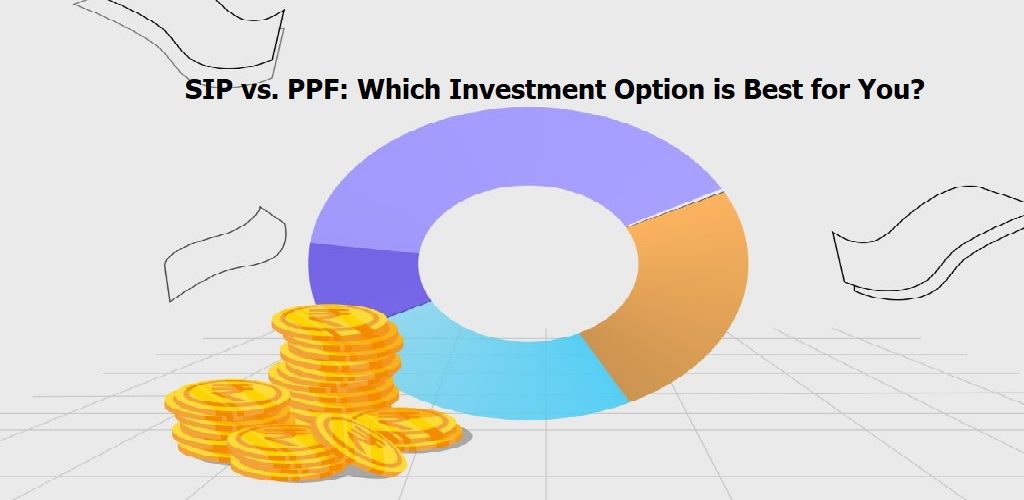When you plant a seed in fertile soil, its roots stretch into unknown depths. And as time unfolds, the seed (once tiny and delicate) transforms into a big and tall tree.
Investing your hard-earned money is just like planting your money to take roots and grow it into a potential tree of wealth. This way, your savings don’t lose value due to rising prices (inflation).
However, it’s equally important to make smart investment choices for financial security and building wealth because any wrong decisions can prove disastrous in the long run. Though there are numerous investment options in India, Recurring Deposits (RDs) and Systematic Investment Plans (SIPs) are two popular options in India. Despite that, some investors may find themselves confused about whether to choose RD or SIP.
Therefore, this post will highlight some of the most important details of the Recurring Deposits vs. Systematic Investment Plan, that will help investors make wise decisions.
What is a Recurring Deposit (RD)?
An RD, or Recurring Deposit, is like a piggy bank where you save money regularly. You decide how much to put in it each month for a certain time. The bank gives you a fixed interest rate, and they add the interest to your FD savings every 3 months as per their rules.
Upon completion of the tenure, you get back all the money you saved, along with the interest your RD has earned. RDs are regarded as a low-risk investment choice in India, making them suitable for individuals who seek a secure means of regular savings and earning a fixed return on their savings.
What Are The Benefits of RD?
The above definitions might have given you a brief glimpse of Recurring Deposits vs. Systematic Investment Plans. Having said that, let’s now discuss some of the most important advantages and features of RDS.
- Compounding Benefits: RDs make your money grow more because they add interest every three months. At the end of the tenure, you get back all your money plus that extra interest you have earned.
- Guaranteed Returns: RDs promise to give you the same amount of interest rate from the start till the end. This makes RDs offer you guaranteed and predictable returns.
- Lower Risk: RDs, in comparison to SIPs, are a safe way to save money. They are suitable for people who do not want to take big risks with their savings. This is the biggest difference when it comes to “Recurring Deposits vs. Systematic Investment Plans”.
- Flexible Tenure: You get to decide how long you want to save with RDs based on your plans and goals. This way, you can make it fit what you want to do with your money.
- Senior Citizen Benefit: If you’re a senior citizen, RDs give you even more extra money. This helps seniors in maintaining their golden years of life.
- Tax Benefits: Even though you have to pay tax on the extra money you earn from RDs, the government lets you pay less tax on the money you put in. This is good for your taxes and encourages people to use RDs for savings.
What Does It Mean By a Systematic Investment Plan (SIP)?
SIPs, or Systematic Investment Plans, are like monthly investment plans, much like RDs. But instead of putting money in a bank, you invest a fixed amount regularly in a mutual fund. It’s like planting a financial seed every month, keeping things steady no matter how the market is doing.
SIPs are super flexible plans, letting you start with a small amount and increase it later. This makes it easy for both new and professional investors. The money you make from SIPs depends on how well the mutual fund does. People pick SIPs based on their money goals, how much risk they can handle, and how long they want to invest.
Major Highlights of SIP
Systematic Investment Plans (SIPs) have gained popularity among investors due to their numerous advantages and features. Some of them are discussed below:
- Flexibility: With SIPs, you enjoy the flexibility of choosing the investment amount and frequency according to your financial goals. You can also adjust the investment amount at your convenience.
- Liquidity: SIPs offer liquidity, allowing investors to redeem their units partially or completely based on their financial needs. This feature provides easy access to funds when required.
- Disciplined Investing: SIPs promote disciplined and regular investing by enabling investors to contribute a fixed amount at regular intervals, typically on a monthly basis. This systematic approach helps inculcate a habit of consistent investment.
- Rupee Cost Averaging: SIPs benefit from rupee cost averaging, where a fixed investment buys more units when prices are low and fewer units when prices are high.
- Transparency: SIPs provide regular updates on the performance of the invested funds. This transparency allows investors to monitor and assess how their money is being managed.
- Tax Benefits: Certain equity-linked SIPs, with a lock-in period of three years or more, qualify for long-term capital gains tax benefits. This tax efficiency makes them an attractive option for investors seeking tax advantages.
- Higher Returns: SIPs offer the potential for higher returns by investing in diversified companies across various sectors. This diversification helps spread the investment risk and increases the likelihood of better returns.
Differences Between Recurring Deposits and Systematic Investment Plan
| Parameters | RDs | SIPs |
| Nature Of Investment | Fixed-Income Investment: RDs work by regularly saving a set amount each month for a specific period, providing fixed returns. | Market-Linked Investment: SIPs mean investing a fixed amount every month in mutual funds, where returns depend on the market. |
| Tenure | Fixed Tenure | Doesn’t Have A Fixed Tenure |
| Returns | Fixed Returns; Comparatively Lower Returns; Guaranteed Returns | Market-Linked Returns; Higher Returns; Non-Guaranteed Returns |
| Risk Factor | Lower Risks | Higher Risks |
| Liquidity | Premature withdrawal is allowed but may come with penalties and reduced interest rates. | SIPs offer better liquidity as compared to RDs. They generally offer higher liquidity, allowing investors to redeem units partially or completely based on financial needs. |
| Interest Rates | Approximately 2.5% To 7% | Approx. 12% To 22% |
| Instalment Frequency | Typically Monthly Instalments | Daily, Weekly, Monthly, Quarterly |
| Interest Calculation | Interest is compounded quarterly or as per the bank’s terms. | Interest depends on the market and is not fixed, as it is influenced by the performance of the mutual fund. |
| Tax Implications | Interest earned is taxable as per the investors’ income tax slab. | May offer tax benefits on long-term capital gains if held for more than one year, subject to prevailing tax regulations. |
Understand RD and SIP With an Example
Mr. Sharma puts in Rs 5,000 a month for 5 years at the interest rate of 7 percent in an RD in the post office. His total investment amount in 5 years would be Rs. 3 lakhs. On the other hand, the same amount he puts in an SIP. Let us find out where he will reap the maximum benefit.
| Recurring Deposit | Systematic Investment Plan |
| Average return percentage – 7% (For this example) | Average return percentage – 12% (For this example) |
| Investment amount – Rs. 3 lakhs | Investment Amount: Rs 3,00,000 |
| Interest earned – Rs. 59,663.95 | Interest Earned: Rs 1,12,432 |
| Maturity amount – Rs. 3,59,663.95 | Maturity Amount: Rs 4,12,432. |
Recurring Deposits, or Systematic Investment Plan, which one is better?
Deciding what to choose from Recurring Deposits vs. Systematic Investment Plans depends on individual financial goals, risk appetite, and investment preferences.
If you prefer a low-risk investment, a fixed monthly commitment, and predictable plus guaranteed returns, then RDs might be more suitable. However, if you are comfortable with some market risks, seek higher flexibility and liquidity, and are open to the potential for higher returns, SIPs could be a better fit.
There’s no one best choice for everyone. That’s why some people might like a mix of both RDs and SIPs to have both guaranteed returns and market-linked growths. It’s highly advisable to consult with a financial advisor to determine the investment option that aligns with your individual circumstances.







